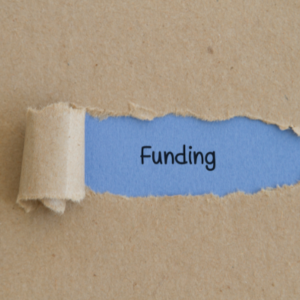The World Bank’s new report, "Poverty, Prosperity, and Planet," paints a sobering picture of global development in the first comprehensive assessment following the COVID-19 pandemic. With poverty reduction stalling and climate hazards rising, the report calls for urgent action to safeguard progress and find pathways out of compounding global crises.
Key Takeaways
- Nearly 700 million people still live in extreme poverty on less than $2.15 a day.
- At current trends, it may take decades—if not a century—to eliminate poverty at higher thresholds.
- Extreme poverty is increasingly concentrated in Sub-Saharan Africa and fragile, conflict-affected countries.
- Climate change threatens to undo poverty reduction gains; one in five people globally are at risk from extreme weather events.
- Progress on inclusive growth and prosperity has slowed dramatically post-pandemic.
Current State Of Global Poverty
Progress in reducing global poverty has ground to a near halt. 8.5% of the world’s population—about 700 million people—live in extreme poverty, earning less than $2.15 per day. A broader measure, $6.85 per day, which applies to upper-middle-income countries, shows that 44% of people remain poor by this higher standard. The number of people living under $6.85 daily has hardly changed since the 1990s, largely due to population growth offsetting poverty reduction efforts.
Sub-Saharan Africa remains the epicenter: despite accounting for only 16% of the world’s population, it is home to two-thirds of those in extreme poverty. Fragile and conflict-affected states further exacerbate this challenge.
What The Future Holds
Looking ahead to 2030, projections suggest some 622 million will still live in extreme poverty, a slower decline compared to previous decades. Even more striking, about 3.4 billion—almost 40% of the global population—are projected to be living on less than $6.85 daily. Without a significant increase in both economic growth and inclusion, the world risks falling far short of poverty eradication targets.
Inequality And Stalled Shared Prosperity
The World Bank introduces the Global Prosperity Gap, reflecting how far the world is from ensuring every person earns at least $25 a day. Progress on this metric has stalled since the pandemic. A typical upper-middle-income country will need up to a century to bridge this gap at current growth rates. High levels of economic inequality persist, especially in Sub-Saharan Africa and Latin America, limiting opportunities and economic mobility for millions.
Climate Risks Multiply The Challenge
One in five people worldwide now faces the likelihood of experiencing an extreme weather event in their lifetime. Climate change directly threatens hard-won gains in poverty reduction and deepens inequalities. Protecting vulnerable populations from these hazards demands both lowering their susceptibility (through social support and services) and accelerating moves toward low-carbon economies, especially in high- and upper-middle-income countries, which contribute most to global emissions.
Efforts to grow economies must balance with climate goals, requiring tough choices and international cooperation. For low-income countries, eliminating multidimensional poverty is paramount, while others must blend growth strategies with urgent decarbonization.
Data And Evidence: The Foundation For Progress
Reliable data is crucial for crafting the right policies. Yet, fewer than half of the world’s countries have recent household surveys to track these changes. The World Bank calls for major investments in modernizing data collection, utilizing advanced tools like artificial intelligence to fill information gaps and monitor progress in real-time.
The report concludes that while a world free of poverty on a livable planet remains possible, only committed, coordinated action will avert lost decades ahead.
Sources
- Poverty, Prosperity, and Planet Report 2024, World Bank.
- Poverty, Prosperity, and Planet Report 2024: Figures, World Bank.
- Poverty, Prosperity, and Planet: Pathways Out of the Polycrisis, World Bank.
- World Bank Tokyo Online Morning Seminar #205 “Poverty, Prosperity, and Planet 2024: Pathways Out of
the Polycrisis”, World Bank.







